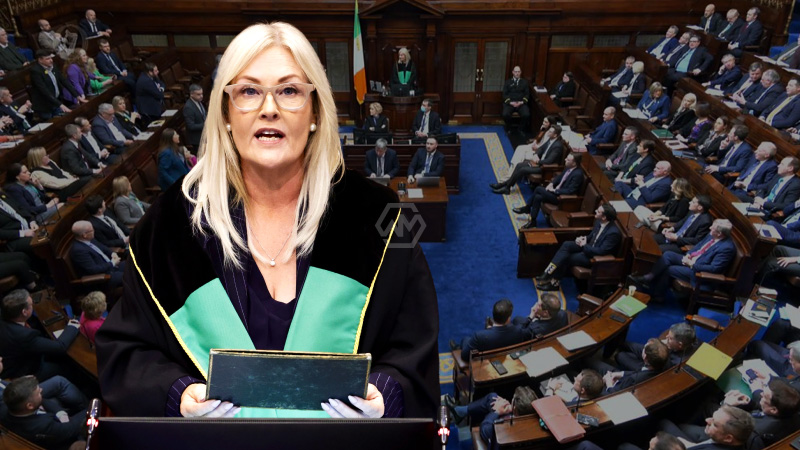- Ceann Comhairle Verona Murphy faces a confidence motion over opposition speaking rights.
- The government backs Murphy, while Sinn Féin and opposition parties challenge her impartiality.
- The outcome could influence parliamentary dynamics and future procedural decisions.
The Dáil Éireann is set to vote on a confidence motion regarding Ceann Comhairle Verona Murphy. This follows controversy over her handling of opposition speaking rights.
This motion stems from a dispute over rule changes that altered speaking rights. Opposition parties claim these changes were orchestrated to benefit government-aligned independents.
Verona Murphy’s Leadership Faces Test Amid Dáil Confidence Vote
Murphy’s election as Ceann Comhairle was initially viewed as a strategic move to solidify government support from independent TDs. However, the recent rule changes ignited controversy, as opposition leaders felt sidelined and questioned her neutrality. The government argues that the procedural changes were fairly implemented and that opposition protests disrupted parliamentary proceedings.
Taoiseach Micheál Martin has defended Murphy, stating that she cannot be blamed for the recent turmoil. He emphasized that the clerk of the Dáil confirmed procedural correctness. Nonetheless, the opposition remains unconvinced. Sinn Féin’s Mary Lou McDonald called her position “untenable” and demanded her resignation.
The confidence motion is expected to highlight deeper tensions within the Dáil. This is especially regarding the balance of power between government-backed independents and opposition parties. Labour‘s Ged Nash stressed the importance of Murphy rebuilding trust. He urged her to demonstrate greater neutrality in her role.
Regardless of the vote’s outcome, this episode underscores the fragile political alliances in Ireland’s government. If Murphy remains in office, she will need to navigate a deeply divided Dáil and restore confidence in her leadership.
The motion of confidence in Verona Murphy is more than just a procedural dispute. It is a reflection of broader concerns over parliamentary fairness and political influence in Ireland’s legislature.
“It’s been incumbent now since the Ceann Comhairle took on that role to be beyond reproach, to show very clearly that she is not in any way partisan.” – Ged Nash



